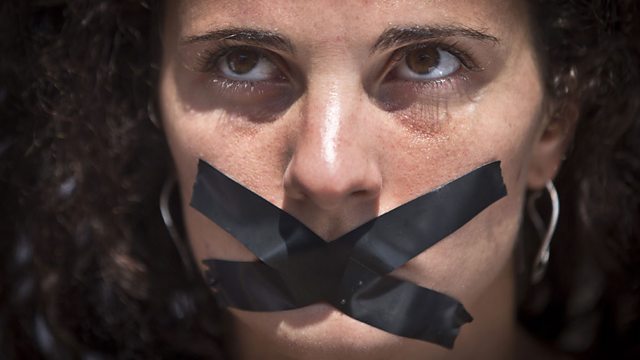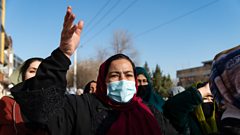Cairo: Reporting Under a Climate of Fear
"For journalists, the fear is paralyzing."
By Ashraf Khalil
Last week, a group of friends with young children got together for a playdate at a local Cairo pizza restaurant that had a modest playground for the kids. We were a mix of Egyptians and foreigners-journalists and some NGO employees and political activists.
It was a pleasant enough day but afterwards one of my good friends remarked at just how weird all of our discussions were. According to her recollection, we had exactly two topics of conversation: a) How wonderful, amazing and cute our collective children were and b) Which one of us would be arrested or forced to flee the country first.
These are treacherous times in Egypt, treacherous and scary in a way that this country has never been before. Over the past seven months since Mohammed Morsi was ousted from the presidency in a wildly popular military coup, the noose has tightened, steadily drawing closer and closer.
Sources, acquaintances, people I respect and now good friends have been arrested, charged, or publicly vilified in the course of a nationalistic hysteria - backed by the government and enflamed by the media - that seems to target anyone who's not in step with the accepted national narrative.
It started with an open manhunt for Muslim Brotherhood officials, many of whom were long-time sources and acquaintances. That part was to be expected; after all the Brotherhood at that point were absolutely hated by all except their extreme baseline supporters.
Some of us may have objected to the extreme brutality with which the group was being treated. But having lived for a year under Morsi, we could sort of understand the public rage being directed in the Brotherhood's direction. But it didn't stop with the Brotherhood. These things never do.
By the fall the rolling crackdown initiated by the new military-backed interim government was expanding to include activists of all stripes, including some of the original 2011 revolutionaries. Some are now in jail for holding an "unauthorized protest" - the protest was in fact protesting the obnoxious new law that requires permission for any protest.
After that, a high profile secularist critic of last summer's coup was charged with "insulting the Egyptian judiciary" - a crime that I'm pretty sure isn't a crime in any civilized nation. And in December, police invaded a hotel room at the local Marriott and arrested three members of the Jazeera English crew-including my friend Mohammed Fadel Fahmy.
For journalists, the fear is paralyzing. The Muslim Brotherhood has now been labelled a terrorist organization-which begs a very disturbing question for people like me.
If I interview a Brotherhood official in exile over Skype, (which happens at least once a month) have I somehow broken the law and am I potentially subject to arrest? We put that question to the government recently and received a wordy response that amounted to "probably not, but maybe."
The government repression has been combined with a sort of hysterical nationalist xenophobia that makes every attempt at street reporting a nerve-racking experience.
Back at the Pizza playdate: at one point several of us became aware of two men in cheap suits sitting at a table nearby. They weren't ordering anything, they weren't smoking. They were just sitting there watching us and our kids.
We quietly chatted among ourselves and agreed that something was up. We're all hyper-vigilant at this point and most of us are under the assumption that we're under some sort of surveillance. But given the nature of our gathering, it was an open question just which one of us had drawn the surveillance. It eventually turned out that the two men were just waiting to meet with the owner of the restaurant.
We all felt a little silly, but only a little. In modern Egypt, they really ARE watching, and they really ARE coming for us.
Duration:
This clip is from
More clips from The Fifth Floor
-
![]()
Seagulls and happiness in Riga
Duration: 07:54
-
![]()
Why a 'beach towel movement' is growing in Turkey
Duration: 06:15
-
![]()
Afghan women fight for education
Duration: 08:51
-
![]()
Watermelons and Ukrainian resistance
Duration: 03:15






